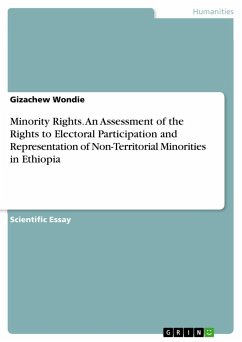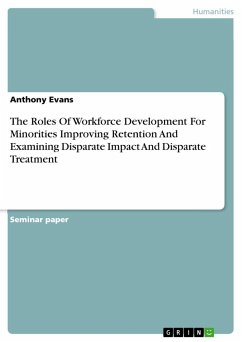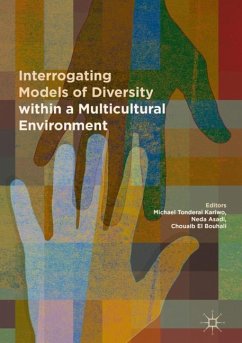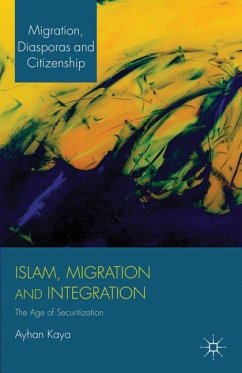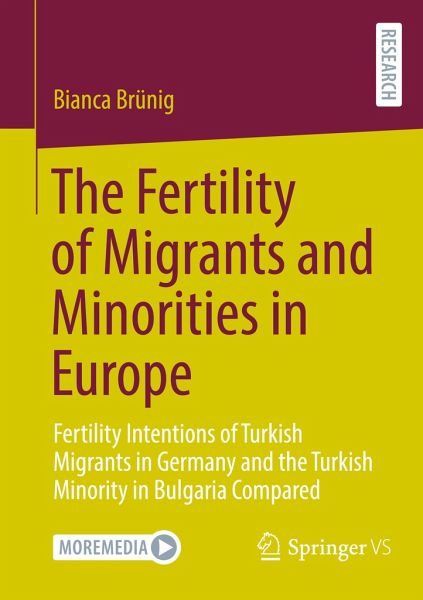
The Fertility of Migrants and Minorities in Europe
Fertility Intentions of Turkish Migrants in Germany and the Turkish Minority in Bulgaria Compared
Versandkostenfrei!
Versandfertig in 6-10 Tagen
65,99 €
inkl. MwSt.

PAYBACK Punkte
33 °P sammeln!
This book analyses the relationship between assimilation and fertility intentions for migrants and minorities in Europe. Building upon assimilation theory, it is argued that both migrants and minorities assimilate in the process of intercultural encounters. Given that fertility is part of the cultural dimension of assimilation, it is likely to be influenced by assimilation. Therefore, theories on assimilation and fertility are merged theoretically as well as empirically. Using data from the Generations and Gender Survey, the empirical section builds upon a comparison of Turkish migrants in Ger...
This book analyses the relationship between assimilation and fertility intentions for migrants and minorities in Europe. Building upon assimilation theory, it is argued that both migrants and minorities assimilate in the process of intercultural encounters. Given that fertility is part of the cultural dimension of assimilation, it is likely to be influenced by assimilation. Therefore, theories on assimilation and fertility are merged theoretically as well as empirically. Using data from the Generations and Gender Survey, the empirical section builds upon a comparison of Turkish migrants in Germany and the Turkish minority in Bulgaria. Building upon cluster analyses, six clusters within Germany as well as five clusters in Bulgaria are developed to account for heterogeneity of groups. Comparing these clusters in terms of assimilation and fertility intentions it becomes clear that the Turkish minority does not differ in their fertility intentions from the majority. For Germany, Turkishmigrants differ from German natives regarding their fertility intentions, but differences are explained by assimilation, especially structural characteristics. When comparing migrant and minority, differences in fertility exist and are accounted for by cultural dissimilarity.





